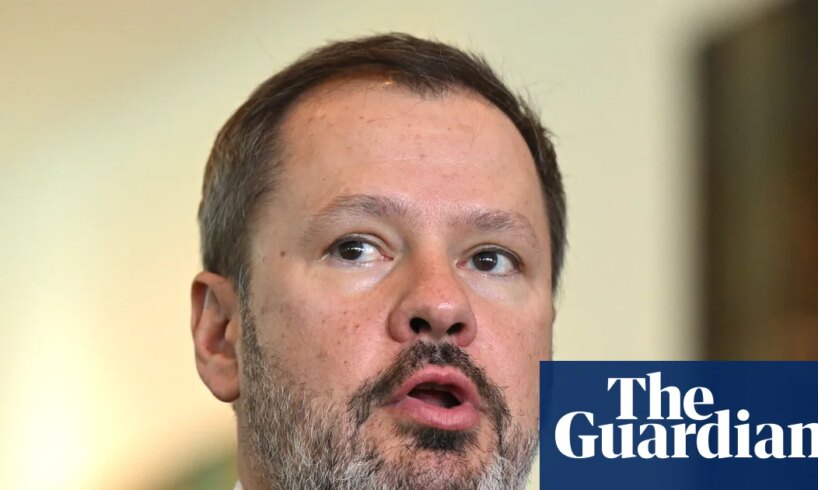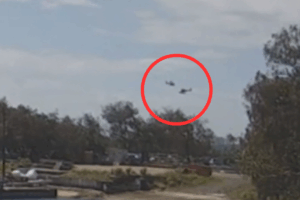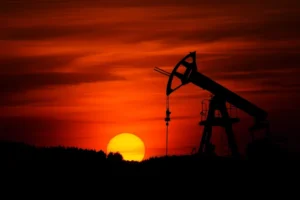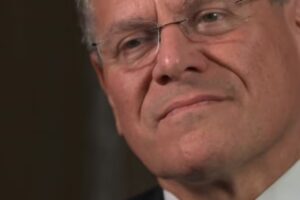
The Labor backbencher Ed Husic is demanding an intervention to combat Japanese gas companies re-selling Australian exports to other markets, breaking ranks from the government and risking diplomatic blowback from Tokyo.
The former industry minister said the government must send a “powerful signal” to overseas multinationals, in particular in Japan, to stop “playing us off as mugs” by profiting off the resale of Australian gas while households and industry on the east coast face high prices and potential supply shortages.
The resources minister, Madeleine King, suggested Husic’s proposal would not materially help the east coast because 95% of Japan’s imports came out of Western Australia and the Northern Territory – which are part of a separate, unconnected market.
Sign up: AU Breaking News email
As the Albanese government actively considers options for an east coast gas reserve, Husic is arguing for a separate, drastic intervention to secure supplies for the east coast.
In an interview with Guardian Australia, Husic said Australians would be “stunned” at the volume of liquefied natural gas that was exported and then sold to other countries.
A report from the Institute for Energy Economics and Financial Analysis found Japanese companies were reselling about half as much as they import from the Australian market, driving more than $1bn in profit.
Husic claimed the government could amend the emergency mechanism designed to prevent domestic shortfalls – the so-called “gas trigger” – to claw back the equivalent of the amount shipped to third countries.
As an example, he said if a company on-sold 100 petajoules of gas in one year then it would be required to divert the same volume back to the domestic market in the following year.
Such a proposal would be staunchly opposed in Japan, which has resisted any Australian government interventions into the gas market that it considers a potential threat to future supplies.
Husic said the government needed to withstand any pushback from Japan.
“I don’t know why we don’t have the guts to withstand the brow-beating from foreign multinationals and from foreign buyers when it comes to our own resource,” he said.
“Japan cannot continue to bully us on the issue of gas supply when they take our gas and sell it to other countries and make a profit off it. That’s not fair play.”
Labor opts for political solution to emissions reduction with Oprah-style target – video
In an interview on ABC’s Afternoon Briefing, King suggested the criticism of Japan was unfair.
King said it was reasonable for Japanese companies to order a surplus of gas as a backstop given how reliant the country was on imports for its energy needs.
skip past newsletter promotion
Sign up to Clear Air Australia
Adam Morton brings you incisive analysis about the politics and impact of the climate crisis
Privacy Notice: Newsletters may contain information about charities, online ads, and content funded by outside parties. If you do not have an account, we will create a guest account for you on theguardian.com to send you this newsletter. You can complete full registration at any time. For more information about how we use your data see our Privacy Policy. We use Google reCaptcha to protect our website and the Google Privacy Policy and Terms of Service apply.
after newsletter promotion
“The gas has to go somewhere if it is going to be produced, the buyers take it [and] they use what they can,” she said.
Earlier this week, King used a speech to declare that the Australian government would not do “anything that harms investment or alters existing contracts, or which jeopardises Japan’s energy security” as part of an ongoing review of the gas market.
Ambassador Kazuhiro Suzuki this week said fears Japan’s on-selling of gas was affecting the Australian east coast was overblown because such a small amount was exported from that market, the Australian Financial Review reported.
Invited to respond to Husic’s criticisms, the Japanese embassy in Canberra said it “respectfully refrains from commenting on the personal views expressed by members of parliament”.
On Thursday, King confirmed the government was “actively looking” at establishing an east coast gas reservation to shore up supplies and contain prices as part of the review.
The model is still up for debate but King reaffirmed that any reservation scheme would not affect existing contracts.
Husic also backed a gas reserve, arguing the various interventions to contain prices – including a price cap, which was introduced while he was in cabinet – have not worked.
“Tinkering and timidity has not worked,” he said.
The Coalition is committed to a gas reserve that applies to new or expanded projects – a key difference from the proposal Peter Dutton took to the election – but will await the government’s model before finalising its own.





